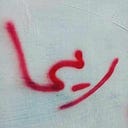What Zionists are doing is also Jewish
Let me ask you a question. If you identify as Jewish, what is your reaction when you see a news item such as: ‘Israel settles 50 Ukrainian Jewish families in West Bank settlements’? Do you think, hey, wait a minute? Why is Israel accepting only Jewish war refugees? Or, in another leap, why is Israel “settling” refugees on land internationally recognized as occupied?
Do you feel any cognitive dissonance and does it even occur to you that Israel has been denying the right of return of Palestinian refugees to their homes and property since Jewish militia expelled them and violently occupied a territory of Palestine in 1948 that now calls itself the Jewish State of Israel?
Today, the crimes of the Jewish entity against Palestinians are being exposed despite the complicity of Western media and Israel’s alliance with Western powers. To frame these crimes only as “settler colonial” and “white supremacist” and “apartheid” without reference to Jews or Judaism is only partially accurate. To insist, at this stage in the Palestinian struggle for liberation, that “Zionism is not Judaism” denies the Jewish identity of Israeli Jews and others outside Israel and simply serves to muddy the issue. And it is, in any case, beyond belief.
Early on, Orthodox and Conservative Jewish groups opposed Zionism for being more nationalist than religious, as did proponents of Reform Judaism, the latter group going so far as to pass a “resolution at the Frankfurt Conference (1845) that removed references to Palestine and a ‘Jewish State’ from prayers on the grounds that nationalism and statehood were not compatible with Reform theology.” But “the Zionist idea” prevailed and Zionism arose as a sect of Judaism because, to many religious Jews, “Israel is the promised land.” Zionism’s primary goal was to prevent secularization and assimilation of European Jewry. This is why, for example, mixed marriage is forbidden in Israel.
As for “secular Jews” — i.e., Jews who identify with certain values and beliefs they call Jewish rather than with the theology of Judaism, a Jewish culture holds them together, but it is a culture that “grows out of a people with a common faith.”
For historical and emotional reasons, these Jews are, for the most part, reflexively Zionist in that they believe in and support “an independent Jewish state” — namely Israel, and do not object to Israel calling itself just that — an independent “and democratic” Jewish State.
Secular activist groups such as Jewish Voice for Peace (JVP) describe on their website how gut-wrenching (and plain difficult) it was for the group to finally disavow Zionism and why:
Through study and action, through deep relationship with Palestinians fighting for their own liberation, and through our own understanding of Jewish safety and self determination, we have come to see that Zionism was a false and failed answer to the desperately real question many of our ancestors faced of how to protect Jewish lives from murderous antisemitism in Europe… Because the founding of the state of Israel was based on the idea of a “land without people,” Palestinian existence itself is resistance. We are all the more humbled by the vibrance, resilience, and steadfastness of Palestinian life, culture, and organizing, as it is a deep refusal of a political ideology founded on erasure.
The role of Judaism in Zionist efforts to legitimate a Jewish state in Palestine has now come to a boil and must be addressed rather than swept under the carpet with facile claims that “Zionism is not Judaism.” As Uriel Abulof writes in Journal for the Scientific Study of Religion, “The right of self-determination, which stands at the core of the ‘secular Zionism’ legitimation, has given way to leveraging Judaism, which in turn has been eclipsed by constructing a Zionist civil religion and a ‘chosen people’ justification.”
Although I understand and can sympathize with the desire that some Jews have to distance themselves from the crimes perpetrated by Zionism (as someone born Muslim, I too distance myself from the crimes perpetrated by some Muslim sects in my name), it is wrong to regard Zionism merely as a “political ideology” that has nothing to do with Judaism. Religion is, in fact, the source of Jewish nationalism (“chosen people”).
Israel’s Jews (including these new immigrants from Ukraine) do not identify themselves as Zionist anymore. Today they identify themselves as Jews and this is what they are. That does not mean “all Jews” are supremacists, of course. Rather, it means that Jewish people are like everyone else and can have supremacists, neo-Nazis and fascists among them, as well as humanitarians, human rights activists, and anti-colonialists.
For decades now, Zionism has defined “the Jewish experience” in Israel and elsewhere. That Jewish experience, not an abstraction such as “political Zionism”, defines the Nakba of Palestinians. It’s time to understand and also accept that what Zionists are doing is also Jewish and that the Jewish State of Israel cannot, indeed must not, continue to exist in Palestine against the will of the indigenous people of the land and to their grave detriment and continued oppression and suppression globally.
___________________________
Rima Najjar is a Palestinian whose father’s side of the family comes from the forcibly depopulated village of Lifta on the western outskirts of Jerusalem and whose mother’s side of the family is from Ijzim, south of Haifa. She is an activist, researcher and retired professor of English literature, Al-Quds University, occupied West Bank.
